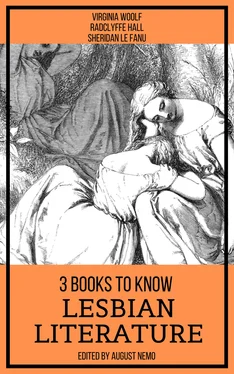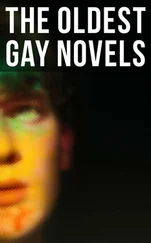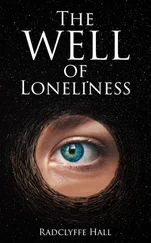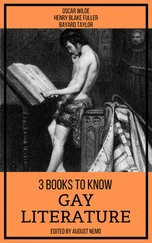The disease gained rapidly upon him now in his solitude. He would read often six hours into the night; and when they came to him for orders about the slaughtering of cattle or the harvesting of wheat, he would push away his folio and look as if he did not understand what was said to him. This was bad enough and wrung the hearts of Hall, the falconer, of Giles, the groom, of Mrs Grimsditch, the housekeeper, of Mr Dupper, the chaplain. A fine gentleman like that, they said, had no need of books. Let him leave books, they said, to the palsied or the dying. But worse was to come. For once the disease of reading has laid upon the system it weakens it so that it falls an easy prey to that other scourge which dwells in the inkpot and festers in the quill. The wretch takes to writing. And while this is bad enough in a poor man, whose only property is a chair and a table set beneath a leaky roof—for he has not much to lose, after all—the plight of a rich man, who has houses and cattle, maidservants, asses and linen, and yet writes books, is pitiable in the extreme. The flavour of it all goes out of him; he is riddled by hot irons; gnawed by vermin. He would give every penny he has (such is the malignity of the germ) to write one little book and become famous; yet all the gold in Peru will not buy him the treasure of a well-turned line. So he falls into consumption and sickness, blows his brains out, turns his face to the wall. It matters not in what attitude they find him. He has passed through the gates of Death and known the flames of Hell.
Happily, Orlando was of a strong constitution and the disease (for reasons presently to be given) never broke him down as it has broken many of his peers. But he was deeply smitten with it, as the sequel shows. For when he had read for an hour or so in Sir Thomas Browne, and the bark of the stag and the call of the night watchman showed that it was the dead of night and all safe asleep, he crossed the room, took a silver key from his pocket and unlocked the doors of a great inlaid cabinet which stood in the corner. Within were some fifty drawers of cedar wood and upon each was a paper neatly written in Orlando's hand. He paused, as if hesitating which to open. One was inscribed 'The Death of Ajax', another 'The Birth of Pyramus', another 'Iphigenia in Aulis', another 'The Death of Hippolytus', another 'Meleager', another 'The Return of Odysseus',—in fact there was scarcely a single drawer that lacked the name of some mythological personage at a crisis of his career. In each drawer lay a document of considerable size all written over in Orlando's hand. The truth was that Orlando had been afflicted thus for many years. Never had any boy begged apples as Orlando begged paper; nor sweetmeats as he begged ink. Stealing away from talk and games, he had hidden himself behind curtains, in priest's holes, or in the cupboard behind his mother's bedroom which had a great hole in the floor and smelt horribly of starling's dung, with an inkhorn in one hand, a pen in another, and on his knee a roll of paper. Thus had been written, before he was turned twenty-five, some forty-seven plays, histories, romances, poems; some in prose, some in verse; some in French, some in Italian; all romantic, and all long. One he had had printed by John Ball of the Feathers and Coronet opposite St Paul's Cross, Cheapside; but though the sight of it gave him extreme delight, he had never dared show it even to his mother, since to write, much more to publish, was, he knew, for a nobleman an inexpiable disgrace.
Now, however, that it was the dead of night and he was alone, he chose from this repository one thick document called 'Xenophila a Tragedy' or some such title, and one thin one, called simply 'The Oak Tree' (this was the only monosyllabic title among the lot), and then he approached the inkhorn, fingered the quill, and made other such passes as those addicted to this vice begin their rites with. But he paused.
As this pause was of extreme significance in his history, more so, indeed, than many acts which bring men to their knees and make rivers run with blood, it behoves us to ask why he paused; and to reply, after due reflection, that it was for some such reason as this. Nature, who has played so many queer tricks upon us, making us so unequally of clay and diamonds, of rainbow and granite, and stuffed them into a case, often of the most incongruous, for the poet has a butcher's face and the butcher a poet's; nature, who delights in muddle and mystery, so that even now (the first of November 1927) we know not why we go upstairs, or why we come down again, our most daily movements are like the passage of a ship on an unknown sea, and the sailors at the mast-head ask, pointing their glasses to the horizon; Is there land or is there none? to which, if we are prophets, we make answer 'Yes'; if we are truthful we say 'No'; nature, who has so much to answer for besides the perhaps unwieldy length of this sentence, has further complicated her task and added to our confusion by providing not only a perfect rag-bag of odds and ends within us—a piece of a policeman's trousers lying cheek by jowl with Queen Alexandra's wedding veil—but has contrived that the whole assortment shall be lightly stitched together by a single thread. Memory is the seamstress, and a capricious one at that. Memory runs her needle in and out, up and down, hither and thither. We know not what comes next, or what follows after. Thus, the most ordinary movement in the world, such as sitting down at a table and pulling the inkstand towards one, may agitate a thousand odd, disconnected fragments, now bright, now dim, hanging and bobbing and dipping and flaunting, like the underlinen of a family of fourteen on a line in a gale of wind. Instead of being a single, downright, bluff piece of work of which no man need feel ashamed, our commonest deeds are set about with a fluttering and flickering of wings, a rising and falling of lights. Thus it was that Orlando, dipping his pen in the ink, saw the mocking face of the lost Princess and asked himself a million questions instantly which were as arrows dipped in gall. Where was she; and why had she left him? Was the Ambassador her uncle or her lover? Had they plotted? Was she forced? Was she married? Was she dead?—all of which so drove their venom into him that, as if to vent his agony somewhere, he plunged his quill so deep into the inkhorn that the ink spirted over the table, which act, explain it how one may (and no explanation perhaps is possible—Memory is inexplicable), at once substituted for the face of the Princess a face of a very different sort. But whose was it, he asked himself? And he had to wait, perhaps half a minute, looking at the new picture which lay on top of the old, as one lantern slide is half seen through the next, before he could say to himself, 'This is the face of that rather fat, shabby man who sat in Twitchett's room ever so many years ago when old Queen Bess came here to dine; and I saw him,' Orlando continued, catching at another of those little coloured rags, 'sitting at the table, as I peeped in on my way downstairs, and he had the most amazing eyes,' said Orlando, 'that ever were, but who the devil was he?' Orlando asked, for here Memory added to the forehead and eyes, first, a coarse, grease-stained ruffle, then a brown doublet, and finally a pair of thick boots such as citizens wear in Cheapside. 'Not a Nobleman; not one of us,' said Orlando (which he would not have said aloud, for he was the most courteous of gentlemen; but it shows what an effect noble birth has upon the mind and incidentally how difficult it is for a nobleman to be a writer), 'a poet, I dare say.' By all the laws, Memory, having disturbed him sufficiently, should now have blotted the whole thing out completely, or have fetched up something so idiotic and out of keeping—like a dog chasing a cat or an old woman blowing her nose into a red cotton handkerchief—that, in despair of keeping pace with her vagaries, Orlando should have struck his pen in earnest against his paper. (For we can, if we have the resolution, turn the hussy, Memory, and all her ragtag and bobtail out of the house.) But Orlando paused. Memory still held before him the image of a shabby man with big, bright eyes. Still he looked, still he paused. It is these pauses that are our undoing. It is then that sedition enters the fortress and our troops rise in insurrection. Once before he had paused, and love with its horrid rout, its shawms, its cymbals, and its heads with gory locks torn from the shoulders had burst in. From love he had suffered the tortures of the damned. Now, again, he paused, and into the breach thus made, leapt Ambition, the harridan, and Poetry, the witch, and Desire of Fame, the strumpet; all joined hands and made of his heart their dancing ground. Standing upright in the solitude of his room, he vowed that he would be the first poet of his race and bring immortal lustre upon his name. He said (reciting the names and exploits of his ancestors) that Sir Boris had fought and killed the Paynim; Sir Gawain, the Turk; Sir Miles, the Pole; Sir Andrew, the Frank; Sir Richard, the Austrian; Sir Jordan, the Frenchman; and Sir Herbert, the Spaniard. But of all that killing and campaigning, that drinking and love-making, that spending and hunting and riding and eating, what remained? A skull; a finger. Whereas, he said, turning to the page of Sir Thomas Browne, which lay open upon the table—and again he paused. Like an incantation rising from all parts of the room, from the night wind and the moonlight, rolled the divine melody of those words which, lest they should outstare this page, we will leave where they lie entombed, not dead, embalmed rather, so fresh is their colour, so sound their breathing—and Orlando, comparing that achievement with those of his ancestors, cried out that they and their deeds were dust and ashes, but this man and his words were immortal.
Читать дальше












